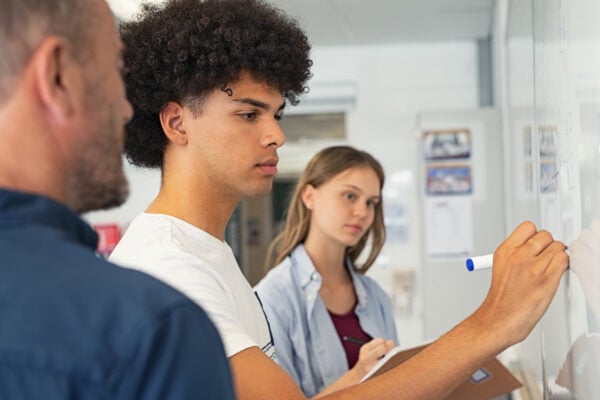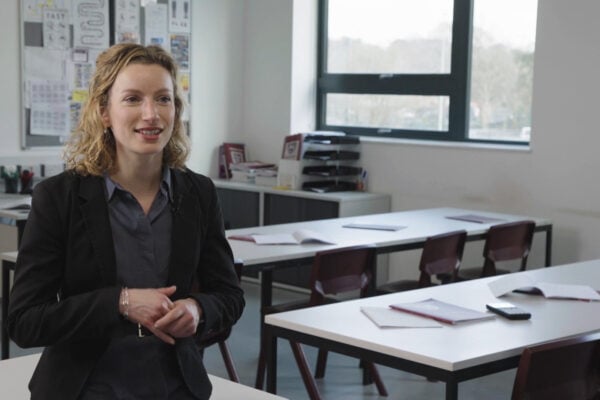How to prepare your students for their maths exams (A-levels and GCSEs)

Learning maths is one thing; studying for A-levels and GCSEs is quite another. Think of the time constraints, the pressure to perform and a fear of failure. Some students even suffer from test anxiety and need extra support. As a maths teacher, how can you help your students get ready for their maths exams and build their confidence? James Davis, Head of KS5 Further Mathematics, Newstead Wood School, shares his experiences.
Key concepts & skills
“I always start by having my students review and practise key concepts and skills,” James says. “This process means that, throughout the year, we go through all the topics together: algebra and functions, trigonometry, sequences and series, data handling – all of it.” Although actually doing exam questions is more important, this first step ensures that James’ students know exactly which topics to prepare for so there are no surprises when the exams arrive.”
Practising exam questions – all year round
The best way to prepare for a maths exam is to practise exam questions all year round. This way, students learn to understand the format. As James says, “You can’t learn maths by reading notes. It’s something you learn by doing. It’s why I include exam questions in all of my lessons.” James also makes sure he always has a bank of old exams. “I simply download old exams from websites and tell my students to do the same.”
Revisiting topics
“There has been a lot of research on how to study maths best,” James says. “Repetition is usually the way to go, which is why I always revisit topics after introducing them. Also, I try to stay within the syllabus content, so I don’t make things more complicated than they are.” During a maths class, James slowly builds up the level of complexity. This approach doesn’t just help students comprehend the maths topics; it also builds their confidence which is just as important.
Practising with time pressure
The time constraint is often the most stressful part of maths exams, which is why James organises multiple mock exams throughout the year. This is helpful for multiple reasons, he explains:
- It familiarises students with the exam format, such as length and the type of questions.
- A mock exam teaches students to use their time efficiently. For example, they learn to skip a low-mark question when they can’t figure out the answer and spend their time working on a question that gives them more points.
- Mock exams prepare students for the stress of an exam.
Providing extra (mental) support
Sometimes, students need some extra support. “In that case, I provide additional resources, such as worksheets or practice exams,” says James. “Or I offer them extra help during office hours or tutoring sessions. Maths exams are not just about knowing how to solve equations; they require a certain level of self-belief. It’s why I help students develop a positive attitude and self-belief in their abilities.”
Calculator practice
Graphic calculators, such as the fx-CG50, are very useful in maths exams, but only when students know how to use them. “I introduce the calculator early in the school year, so my students have time to learn the different settings and functions. If this is not possible, I wait until next year.” (Here are some tips to get you started). James: “If you integrate the graphic calculator in every maths class, your students will learn how to use it intuitively, which is needed to go into the exams confidently.”
We wish you good luck preparing your students for their A-levels or GCSEs! Do you need support in introducing the fx-CG50 in the classroom? We provide free skills training sessions to help you build confidence using graphic calculators in the classroom, which, in turn, will increase your students’ engagement. Sign up for your free session here!



